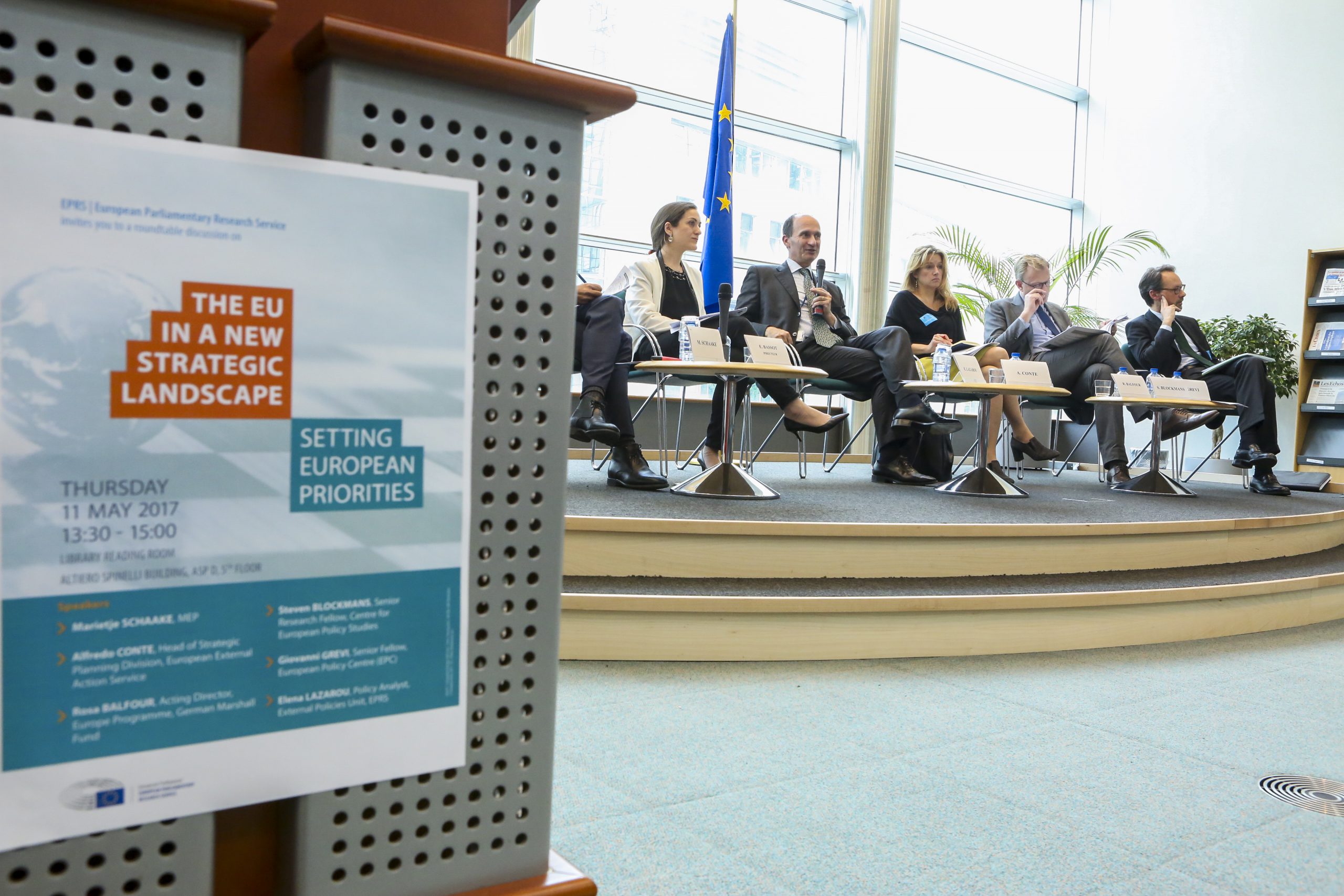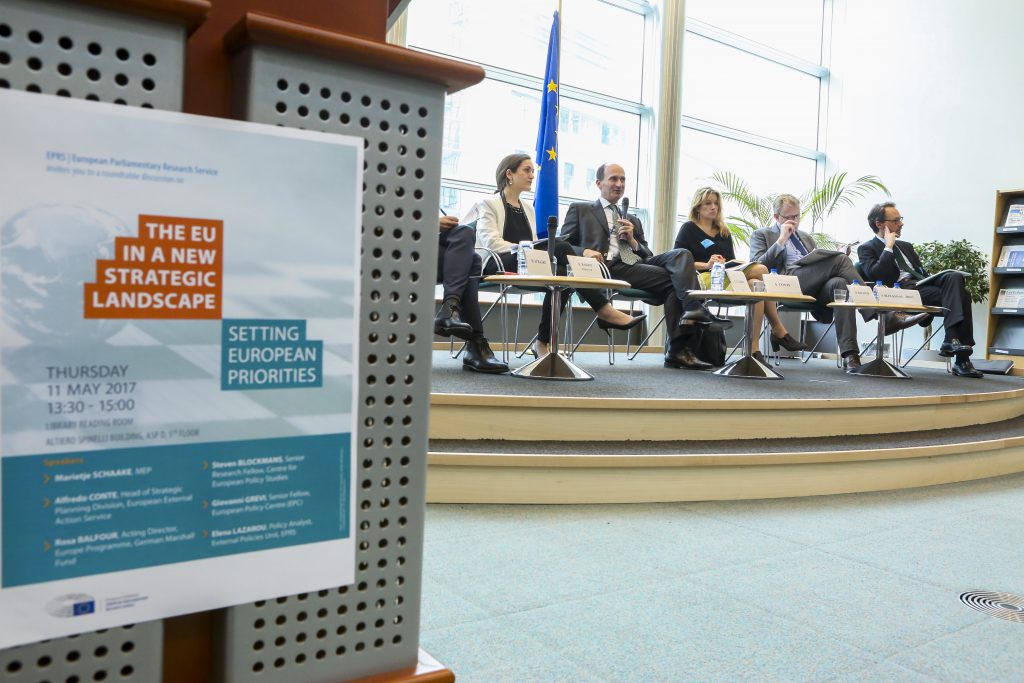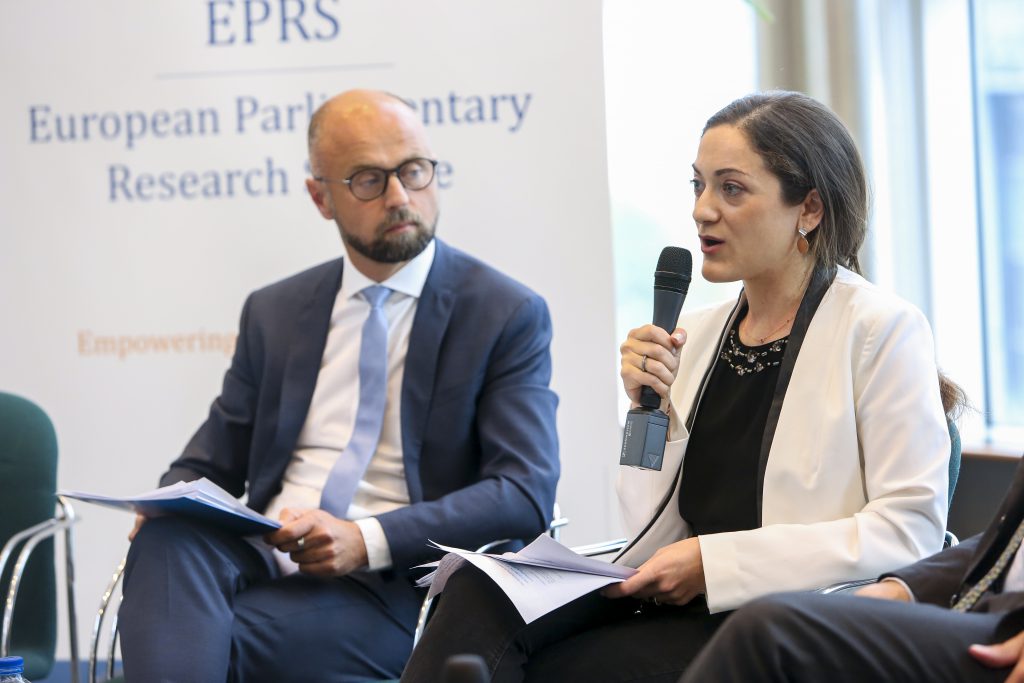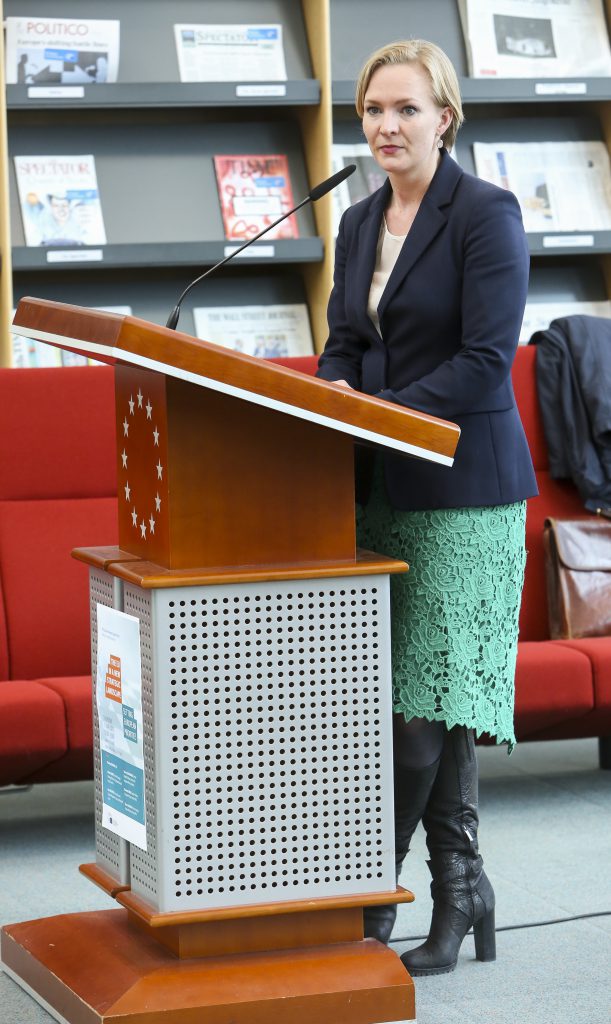Written by Elena Lazarou with Jessica Parks.

On 11 May 2017, EPRS organised a public event on the EU’s external dimension, and more specifically on what the EU’s strategic priorities should be in a changing strategic landscape. The event is the second in a series of roundtables aiming to assist preparatory work in the European Parliament on its forthcoming resolution on the proposals (scheduled for July 2017), ahead of the European Commission’s 2018 work programme (scheduled for October 2017).
The first event in this series, held on 27 April 2017, focused on economic and social policy. The events come at a time of deep reflection about the future of the EU. The European Commission launched its white paper on the future of Europe earlier this year and is also in the process of publishing five reflection papers on major EU issues, including the social dimension, harnessing globalisation, economic and monetary union, defence and finance.
Addressing the audience in her opening remarks, Marietje Schaake (ALDE, The Netherlands), raised the topic’s central question: what does it mean for the EU to be a global actor? Multiple recent events have tested the EU’s resolve in this area, including Russia’s annexation of Crimea, the election of Donald J. Trump as president and his unpredictability as a policymaker, and the referendum consolidating presidential power in Turkey. Schaake emphasised that the EU needs to meet external policy challenges with strong political leadership, informed by core values.

The speakers agreed that the internal and external strategic landscape for the EU has changed, and not only recently. Alfredo Conte, head of the Strategic Planning Division at the EEAS, pointed out that the EU has altered one of its fundamental assumptions over the past 13 years; the bloc no longer expects that external players are also following a path to democracy, openness and multilateralism. Questioning of the value of multilateral institutions from major partners such as the USA has caused anxiety. However, Elena Lazarou, a policy analyst with the External Policies Unit of the EPRS, pointed out that the USA is not the first country to raise the question of reform of intergovernmental institutions, and that reform may be in order more than ever before. Additionally, recent challenges have proven particularly problematic for internal EU dynamics. Rosa Balfour, Senior Fellow of the Europe Programme at the German Marshall Fund, argued that the east and south remain divided over their priorities. Eastern states are more concerned about Russian aggression and NATO, while the southern states seek support in dealing with the migrant crisis. The Brexit process will also have a significant impact on EU financial resources and yet, as Balfour stated, only 6 % of the budget goes to external policy. These are all questions that need to be addressed.

Turkey and the Middle East, significant areas in EU external policy, including in the Commission’s work programme, present opportunities for the EU to redefine aspects of its external policy. Steven Blockmans, senior research fellow at the Centre for European Policy Studies, noted that it is time for a ‘reset’ in EU-Turkey relations, one that should begin with the formal ending of Turkey’s accession negotiations. Blockmans remarked that candidate countries need to learn that this process is not automatic; leaders in the Western Balkans, for example, create unrest domestically because they know that doing so will garner European attention and thus advance their own accession processes. In regards to Syria, Blockmans stated that the EU needs to ensure that the political transformation occurs in the best possible manner, including implementing transitional justice and supporting peace talks.
The unpredictability of US foreign policy under President Trump is of concern to both Member State and EU leaders. Nevertheless, the transatlantic relationship has remained steady thus far. Giovanni Grevi, a senior fellow at the European Policy Centre, argued that US foreign policy under Trump has actually remained consistent, although much uncertainty still exists as to whether future policy will proceed in a pragmatic or nationalist direction. While the US is a core partner, Grevi argued that it is entirely possible for US-EU relations to move in a more asymmetric and transactional direction. The EU must be prepared for this shift, continuing to engage with the USA, whilst also reaching out to other important partners, such as China.
The speakers agreed that continued EU engagement (including taking a more forward role in foreign policy) is vital to meeting both internal and external challenges. Grevi, Balfour and Conte all stated that the EU needs to engage more effectively with non-state actors, especially civil society groups. To improve internal cohesion, Balfour recommended a ‘grand compromise’ between the east and south. The EU should also seek to strengthen its resources as a foreign policy actor. Balfour recommended an increase in human resources, including dedicating more resources under the Multiannual Financial Framework, to supporting diplomacy and conflict prevention efforts. With the prospect of a reduced US budget affecting American involvement at the UN, Grevi emphasised that the EU should form informal coalitions within the UN to fill the potential leadership gap.











Be the first to write a comment.